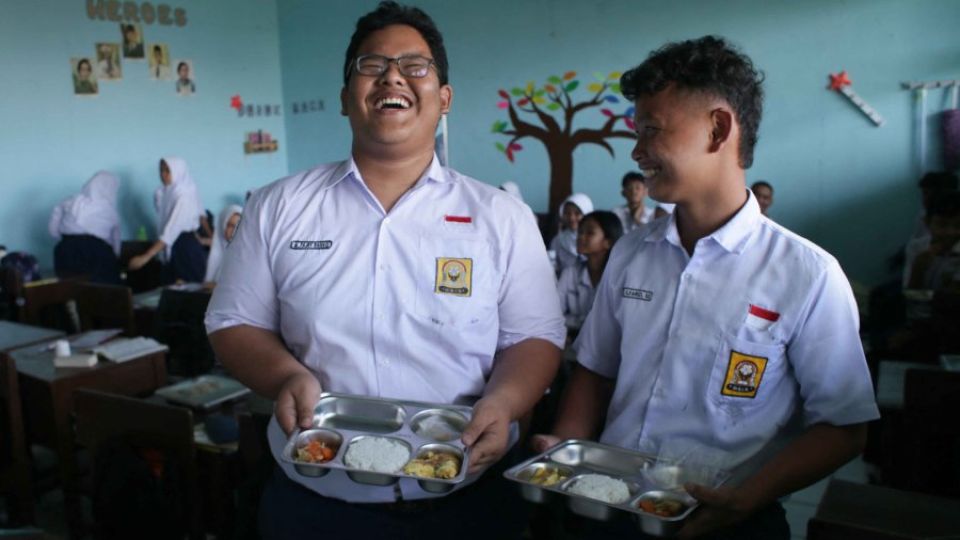JAKARTA (ANN/JAKARTA POST) – President Prabowo Subianto’s highly anticipated free nutritious meals program officially launched on Monday across multiple provinces, aiming to improve the quality of life for schoolchildren and pregnant women while addressing Indonesia’s stunting crisis.
The initiative, touted as the first universal government-subsidised meal program in Indonesia’s history, seeks to provide high-quality, hygienically prepared meals to tens of millions. “For the first time in independent Indonesia, a universal program will offer rich nutritious meals to millions, processed with high standards of hygiene,” said Philips J. Vermonte, spokesperson for the Presidential Communication Office (PCO).
The program has garnered support from United Nations agencies and aims to significantly reduce the stunting rate—currently at 21.5 per cent—to five per cent by 2045.
A nationwide effort
From the early hours of Monday, hundreds of kitchens, including those run by military bases, prepared diverse menus. A kitchen in Palmerah, West Jakarta, served meals of white rice, teriyaki chicken, fried tofu, stir-fried long beans, and oranges. Meanwhile, a military kitchen in East Java provided fried chicken fillets and tempeh with milk, while another in Medan, North Sumatra, included melon and mineral water.

Meals were delivered to schools in new stainless-steel food boxes, which students returned after use. “We have 50 staff working here, including cooks, portioning staff, sanitation workers, and a nutritionist,” said Yudha Permana, head of the Palmerah kitchen, which served meals to about 3,000 students.
Positive reception
At Barunawati Elementary and Junior High School in West Jakarta, over 500 students enjoyed their meals, with second grader Muna joking, “It’d be great if there was ice cream, too.” Seventh grader Gavin, 13, appreciated the initiative, noting that he usually skipped lunch and only bought flavored drinks during breaks.

In Sidoarjo, East Java, the program also launched successfully despite minor delays. Danang, a tenth grader at SMA Muhammadiyah 2, said, “This initiative helps even though we can afford lunch. Hopefully, the program continues and meets its goals.”
Challenges and criticism
Despite its promising start, the program faced some hurdles. Students noted the absence of milk, which was provided during pilot trials. Deputy Social Affairs Minister Agus Jabo Priyono clarified that milk would now be offered only two to three times a week due to budget adjustments.
President Prabowo reduced the budget per meal from IDR15,000 (93 US cents) to IDR10,000 in late 2024, sparking concerns among experts that this might compromise the nutritional value of the meals.

In some provinces, not all planned kitchens were operational. Of the 17 kitchens in East Java, only eight were ready on the first day. Additionally, the program for pregnant women in Jakarta was delayed but is expected to begin on January 9.
Dedek Prayudi, another PCO spokesperson, assured that efforts were underway to meet the program’s target of 3 million people in its first phase, with 937 kitchens expected to be operational by March. The government aims to cover 15 to 20 million people by the end of this year and 82 million by the end of Prabowo’s administration.
Learning and improving
Despite these shortcomings, the National Nutrition Agency (BGN), overseeing the program’s implementation, expressed optimism. “We’ll improve each day so meals can be delivered quicker and cleaner, and cater to everyone’s tastes,” said BGN head Dadan Hindayana.
Although President Prabowo did not attend the program’s launch, a spokesperson confirmed that he plans to visit a school soon.
The free meals program represents a bold step in tackling stunting and improving health nationwide, reflecting the government’s commitment to long-term development goals.


